Posted on: 20 November 2020
This week’s leadership message comes from Brendan Brown, CEO for Airedale NHS Foundation Trust. Brendan is also the CEO lead for our workforce programme and chair of the Partnership’s People Board. There is also a leadership message from Suzannah Cookson, Chief Nurse for Wakefield Clinical Commissioning Group for World Antimicrobial Awareness Week (18-24 November).
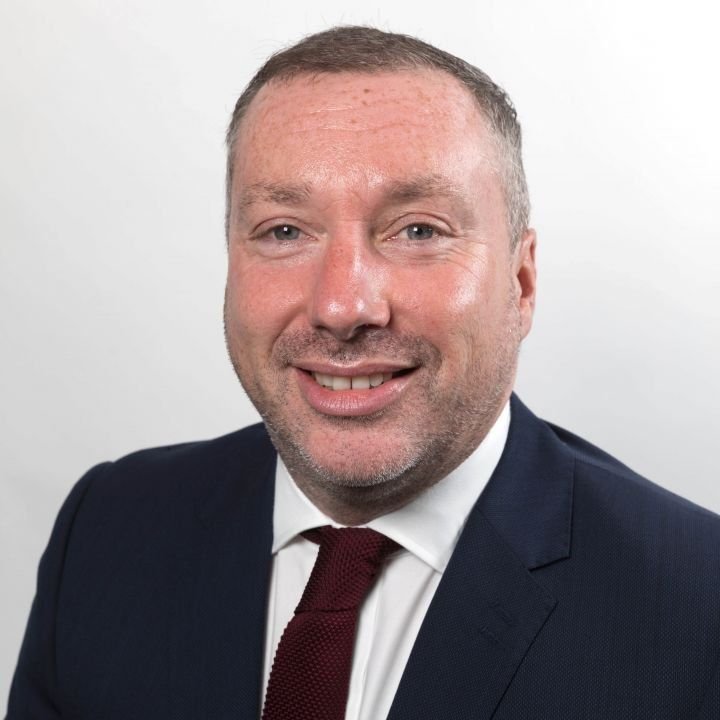 Hello, my name is Brendan.
Hello, my name is Brendan.
As the end of 2020 approaches, there’s so much to look back on. It may be stating the obvious but our workforce has been amazing, working tirelessly throughout the pandemic. It really is a story of ‘ordinary people, extraordinary effort’, and of strength in numbers. Our people are continuing to work extremely hard and are facing immense pressure at the moment and I therefore want to ensure we prioritise our efforts into supporting the health and wellbeing of our staff above everything else we are doing as part of the workforce work programme.
As a Partnership, we have just one goal and that is to help the 2.7million people across West Yorkshire and Harrogate to live healthy and happy lives that have a great start and go on for many years. When we work together, when we invest in services that support mental and physical health at the same time and share good ways of working, we can create the conditions to achieve this goal and make sure that children get the best start in life, and everyone’s chance of living a long, healthy life improves.
The contribution of our diverse and varied workforce is essential to this – across health, social care, the community and voluntary sector and unpaid carers. We need to ensure that we look after, value and develop our current workforce we have and continue to grow the future supply.
The health and wellbeing of our workforce is vital to the quality of care provided with our communities so supporting colleagues to stay safe and well during the pandemic has been, and continues to be, a priority. This is even more important at this time as colleagues are once again dealing with the immense pressures of the pandemic and winter pressures. I am therefore delighted that we have secured addition funding of over £1m to invest in a Mental Health and Wellbeing Hub for the system across West Yorkshire and Harrogate and to develop enhanced occupation health and wellbeing provision in each place across the area.
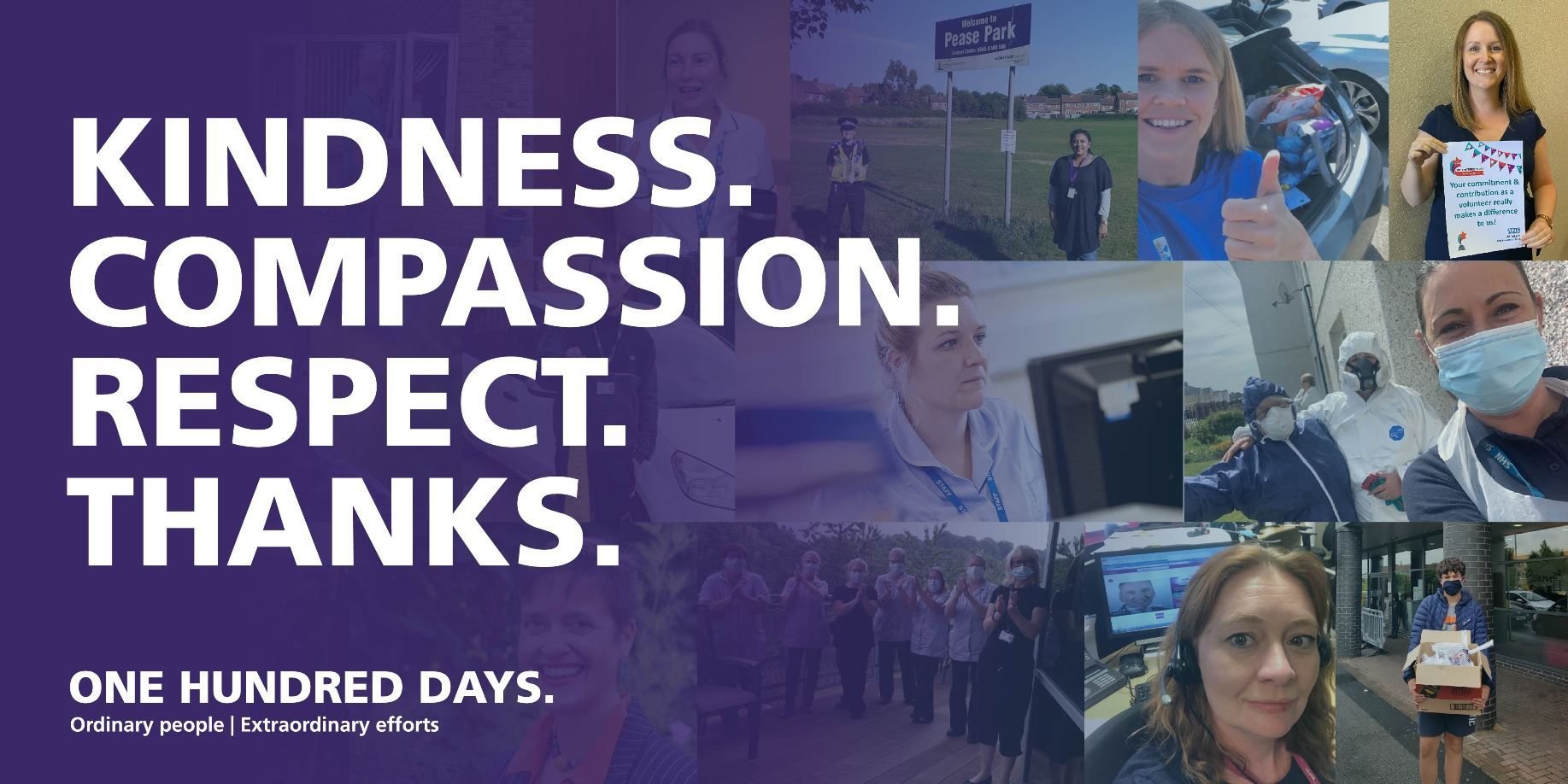 Like many other areas, we face challenges in recruiting and retaining a skilled workforce which is particularly true for primary care. Our ongoing work to attract, develop, support and retain primary care staff to work alongside community and voluntary organisations in our most needed communities will help support the wider system in addressing health inequalities. Our status as an ‘early adopter’ on the Regional Retention Improvement Pathfinder Programme will allow us to put focussed attention into developing effective retention strategies based on shared learning to ensure we provide colleagues with the best experience and retain staff across all professions and sectors.
Like many other areas, we face challenges in recruiting and retaining a skilled workforce which is particularly true for primary care. Our ongoing work to attract, develop, support and retain primary care staff to work alongside community and voluntary organisations in our most needed communities will help support the wider system in addressing health inequalities. Our status as an ‘early adopter’ on the Regional Retention Improvement Pathfinder Programme will allow us to put focussed attention into developing effective retention strategies based on shared learning to ensure we provide colleagues with the best experience and retain staff across all professions and sectors.
In addition to making sure our workforce is supported and looked after, we must also make sure that it reflects the enviable diversity within our communities. We are fully committed to achieving greater diversity based on ethnicity, race and religion to benefit from a wider range of skills, ideas and experiences that will take the workforce from strength to strength. Put simply, our workforce reflects the communities it serves.
Partner organisations have, or are, establishing Black, Asian, and minority ethnic colleague (BAME) networks which together, form the West Yorkshire and Harrogate BAME Network. For example, Bradford Teaching Hospital NHS Foundation Trust has involved over 400 BAME colleagues across its hospitals via webinars to explore concerns and challenges around themes such as personal protection equipment, health and wellbeing and risk assessments. And there are many other excellent examples of how partner organisations have developed and enhanced their local BAME networks across all partner sectors.

The dis-proportionate impact of COVID-19 on BAME communities and therefore a significant proportion of our workforce is well documented. The Partnership’s independent review led by Professor Dame Donna Kinnair was set up in response to this over the summer. The review is now complete and the review’s findings and recommendations were published last month. The action plans for recommendations are being discussed at the Partnership Board on the 1 December.
The recent news about the potential of a COVID-19 vaccine being available as early as next month is very exciting and has the potential to be a real game changer for our workforce, our services and the communities we serve. However, whilst this is fantastic news, we also need to consider the workforce that will be required to deliver this vast programme which will of course add additional pressure on the system. We will therefore look to maximise all potential new workforce supplies to contribute to this national effort to minimise the impact on our existing workforce as much as possible.
As a Partnership, we’re determined not only to emerge from this pandemic having grown for the better, but to continue to look to the future we have envisaged as part of our evolving plans. We want to be regarded as ‘a great place to work’ so, even now as the second wave of the pandemic is upon us, we are:
- Developing our own People Plan which builds on our response to the NHS People Plan with a broader scope to better reflect the Partnership’s ambitions
- Working with our mental health colleagues to look at the education and training requirements for older people’s mental health, and a possible system-wide approach to international recruitment of mental health nurses.
- Continuing to look at opportunities to bring back healthcare professionals who wish to return to practice, as well as targeted recruitment campaigns for the region. This will also help to make sure that the workforce is in place and ready for the roll-out of the Covid-19 vaccination programme as we move towards 2021.
- Delighted to have launched our BAME Fellowship which is aimed at providing leadership experience to colleagues who are aspiring leaders.
- Working with the West Yorkshire Combined Authority and the university / health education sector to identify opportunities for the health and care sector to bring about economic recovery. This will include establishing a workforce observatory to strengthen workforce planning capability.
- Supporting the training of 139 Advanced Clinical Practitioners (ACPs), including 28 primary care ACPs and 11 mental health ACPs, with funding provided by Health Education England.
- Working with trusts to make sure that our Continuing Professional Development (CPD) money is fully spent. We can then use our workforce development money to commission programmes that are currently not funded but needed for those organisations that don’t have access to CPD money..
- Establishing West Yorkshire and Harrogate initiatives that will make sure we continue to offer health student placements to help the workforce grow, even in the shadow of COVID-19.
- Working with our Cancer Alliance and West Yorkshire Association of Acute Trust colleagues to scope the workforce challenges in diagnostics. We’ll help them come up with innovative solutions to address the immediate workforce shortages, and to plan ahead for the future.
- Moving towards the start of our innovative new rotational Trainee Nursing Associate (TNA) programme that will look to blur boundaries between health and social care whilst equipping our future nursing workforce with invaluable system knowledge.
The challenges of COVID-19 remain and will do so for some time to come but the commitment and resolve of the health and care workforce across all sectors in West Yorkshire and Harrogate is fantastic but we need to ensure we do not take this for granted and continue to support our people and look after each other. I hope that helps to give you a flavour of the work taking place to support our wonderful workforce and colleagues in the immediate future and beyond.
Thanks for reading, have a safe weekend,
Brendan
World Antimicrobial Awareness Week (18-24 November)
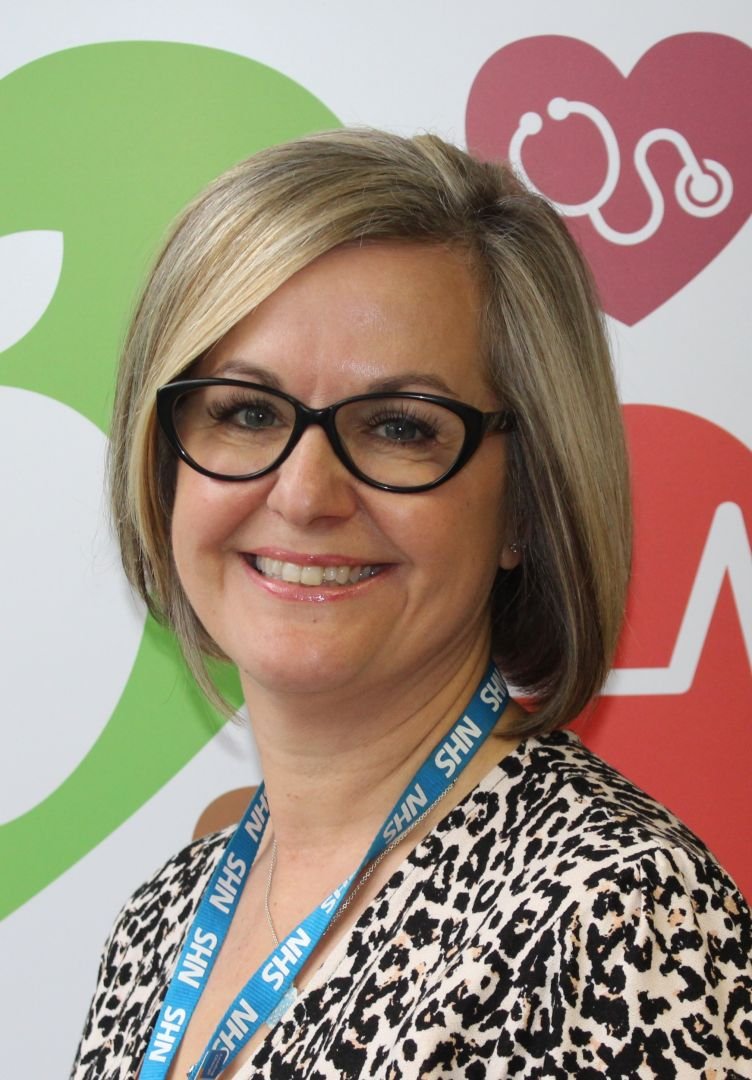 Hello my name is Suzannah.
Hello my name is Suzannah.
COVID-19 has brought to the fore the impact that a global health emergency can have on both our health and care system and our lives as a whole. In response to this pandemic we can reflect on the impact of other threats to global health, including anti-microbial resistance.
Antimicrobial resistance represents a major global health threat and one that should not be ignored. The World Health Organisation has identified antimicrobial resistance as one of the top global health challenges facing the world today.
Did you know? In 2018/19 in West Yorkshire and Harrogate there were 1,294 cases E.coli bacteremia, the leading cause of antibiotic resistant infections and around 15% of people die within 30 days. The leading causes of E.coli bacteremia blood stream infections are urinary tract infections, which can be preventable with hydration, good hygiene and early detection and treatment.
Did you also know that no new classes of antibiotic have been discovered since the 1980s? This, together with the increased and inappropriate use of the drugs we already have, means we are heading rapidly towards a world in which our antibiotics no longer work. We need to act, and act now, to make sure that our children and future generations continue to benefit from the lifesaving medications that our generation and that of our parents has benefited from.
Every year, World Antimicrobial Awareness Week aims to increase awareness of global antimicrobial resistance (AMR) and to encourage best practices among the general public, health workers and policy makers to stop the further emergence and spread of drug-resistant infections. A global action plan to tackle the growing problem of resistance to antibiotics and other antimicrobial medicines was endorsed at the Sixty-eighth World Health Assembly in May 2015. One of the key objectives of the plan is to improve awareness and understanding of antimicrobial resistance through effective communication, education and training.
As resistance grows to a wider range of drugs, we have broadened the focus of this campaign from antibiotics to all antimicrobials. The theme for World Antimicrobial Awareness Week 2020 for the human health sector is “united to preserve antimicrobials.”
This year has been a year like no other, in terms of the world experiencing a global COVID-19 pandemic. There have been many sacrifices and also many examples of human kindness and caring for others. All of us learning many new slogans such as “hands, face, space.” Hearing daily how the pandemic evolves and begins to impact on our lives and liberties. It’s strange isn’t it that despite having a global action plan antimicrobial resistance is increasing, one of the most significant actions through the emergence of COVID-19 has been the action of hand hygiene, which ironically is one of our key actions for antimicrobial resistance.
So why is antimicrobial resistance increasing?
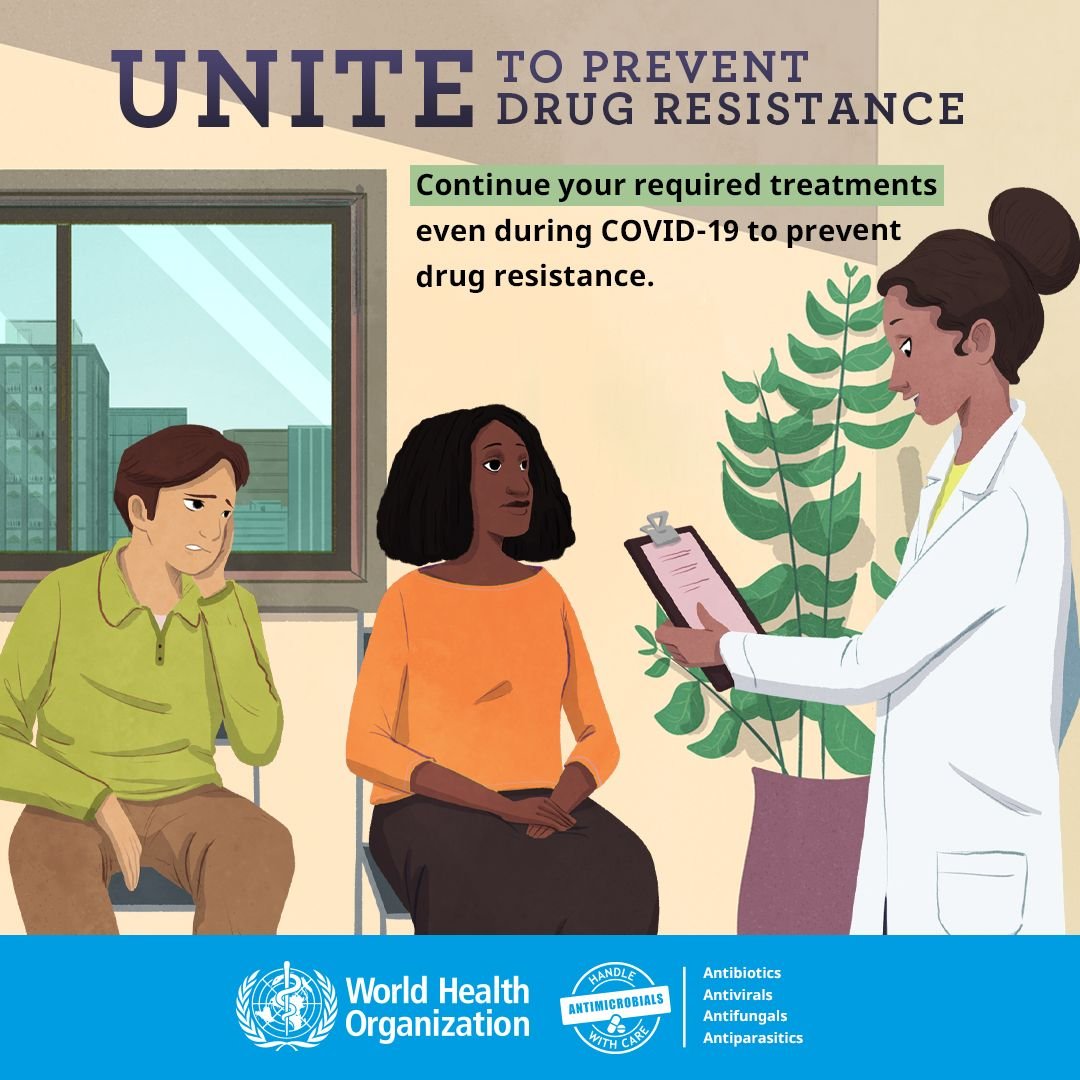 Misuse and overuse of antimicrobials in humans, animals and plants are the main drivers in the development of drug-resistant infections. Poor medical prescribing practices and patient adherence to treatment also contribute. For example, antibiotics kill bacteria, but they cannot kill viral infections like colds and flu. Often they are incorrectly prescribed for those illnesses, or taken without proper medical oversight. Antibiotics are also commonly overused in farm animals and agriculture.
Misuse and overuse of antimicrobials in humans, animals and plants are the main drivers in the development of drug-resistant infections. Poor medical prescribing practices and patient adherence to treatment also contribute. For example, antibiotics kill bacteria, but they cannot kill viral infections like colds and flu. Often they are incorrectly prescribed for those illnesses, or taken without proper medical oversight. Antibiotics are also commonly overused in farm animals and agriculture.
Lack of clean water and sanitation in health care facilities, farms and community settings and inadequate infection prevention and control promotes the emergence and spread of drug-resistant infections. The misuse of antibiotics during COVID-19 pandemic could lead to accelerated emergence and spread of antimicrobial resistance. COVID-19 is caused by a virus, not by bacteria and therefore antibiotics should not be used to prevent or treat viral infections, unless bacterial infections are also present.
So what actions are we taking now?
Each of our six local places (Bradford district and Craven; Calderdale, Harrogate, Kirklees, Leeds and Wakefield) has well defined action plans for antimicrobial resistance. As a Partnership we have a steering group that began to meet in December 2019. We hold workshop events to consider opportunities for shared learning, where we can collectively support each other, where AMR work could be strengthened and led in collaboration with other Partnership programmes and to also explore the opportunities to work at scale to achieve better outcomes, through increasing understanding and awareness for increased action and population benefit.
This work has been paused through the COVID 19 pandemic, however in September we relaunched the group and finalised an action plan and when better to launch our work then ahead of Anti-Microbial Awareness Week. These high level plans compliment and add value to local plans and are initiatives which the experts on the steering group consider could be achieved at scale.
So what can you do as a health and care professional?
If you prescribe anti-biotics as part of your role, then Public Health England colleagues recommend that you:
- Follow current NICE guidelines to infer if pneumonia has a COVID-19, a viral or a bacterial cause
- Treat coughs, fever and breathlessness realted to COVID-19 in line with new, clinical guidance, not with antibiotics, Please consider the COVID-19 and Flu pathway for diagnosis, testing and clinical management.
- Explain to people that antibiotics do not prevent or treat viral infections including COVID-19. Antibiotics can cause side-effects, including nausea and diarrhoea. Antibiotics use can also increase the risk of spreadig infections that are caused by bacteria resistant to antibiotics. One action we can all do is to make an Antibiotic Guardian Pledge and to encourage colleagues, family members and friends to do the same. This year the COVID-19 pandemic has presented numerous additional challenges for health professionals managing patients with infections. Now, more than ever we need to continue to work together to prevent serious infections – including COVID-19 – whilst reducing inappropriate antibiotic use.
Have a safe weekend,
Suzannah
Islamophobia Awareness Month
As part of our Partnership’s Positive About Islam and Muslims campaign during Islamophobia Awareness Month that takes place during November, we will be sharing blogs from our Muslim colleagues from across the partnership. This week’s message comes from Dr Huma R Khan, Trainee Doctor in Psychiatry at Leeds and York Partnership NHS Foundation Trust.
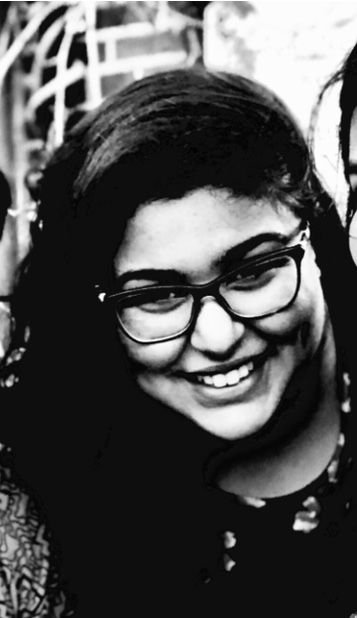 Hello, my name is Huma.
Hello, my name is Huma.
“Asian men beat up their wives and force them to cover up. Mummy says Asians are bad people.” “Really?! Thank God I am not an Asian”.
This is a conversation between two five year olds where the first child spreads word about dangerous Asian Muslims for the safety of the other child, who is incidentally her friend. The second child is horrified that such atrocities are taking place and feels a sudden surge of anger towards Asians for their callousness.
I was the second child.
I was so horrified about what I heard that an immediate protest was necessary. I was adamant that the authorities must find out who these Asians were and make them accountable for their actions. Admittedly, at the age of five years, the only authority I recognised was my mother’s and so to her I presented my case and sought justice. She heard what I had to say and her first (and perhaps appropriate) response was educating this simple child before her. That was the day I learned that I was an Asian.
In a single moment I went from being Abbie’s “friend” to being her “Asian Muslim friend” - all within the span of a sentence or two. In all fairness, the revelation that I was an Asian Muslim was also shocking to Abbie. It turned out ok though. Mother provided us with some curry and rice and all was well again.
Whilst I continued to meander through life and explored my identity as a Muslim, I discovered that a lot of people had a whole lot to say about a Muslim woman and what her existence should entail. The voices disproportionately belonged to the male gender – both, in and out of the Muslim community.
Being a Muslim woman is not an easy task, especially if you are “visibly” a Muslim woman i.e. wearing the hijab. During sixth form and the first semester of my first degree, I decided that I wanted to wear a headscarf. Both my parents tried to talk me out of it as they felt I might experience a backlash. The Mothership, in her desperation, even tried the “it will ruin your hair” approach (we, the Khan’s are somewhat dramatic in our approach to life).
Nevertheless, it was not long before the hijab came off. A person’s decision to wear or not to wear any item of clothing should be their prerogative. My decision to take the hijab off was not based on a spiritual reflection or my journey as a Muslim. Rather, on a winter evening whilst walking from the J.B Priestly library to my car – a white man thought it funny to pull my headscarf off. As hilarious as it may have been for him and his friends, it made me question why someone felt bold enough to walk into my personal space and rip something off that was a part of me. I picked my scarf up, got into my car and went home.
The concept of identity is perhaps one of the most burdensome things I have tried to understand in recent times. Not only are constructs of identity determined by our perceptions, associations and experiences; they are also closely embedded in historical, political and anthropological frameworks. Identity, unfortunately, is somewhat an essential disease of the human condition. Whilst it can give the security of being part of something bigger than oneself, it also provides the basis of othering communities and nations.
On the Equality and Diversity checklist I manage to score points for gender, race, disability and religion. Whilst any struggles I may have endured as a woman of colour with a disability have been supported and my causes championed, it’s the Muslimah (a Muslim woman) who feels isolated at times. I believe my feelings are a reflection of how we perceive these attributes as a society. I have never been challenged, mocked or belittled for the other aspects of my identity. A whole community of voices, rightly so, would rise to challenge that. However that is not the case when it comes to Islamic identity. In a true dystopian sense I found myself in a society that is compared to a letterbox, burglar and stereotyped as “traditionally submissive” by public servants. This made the headlines, led to 300%+ Islamophobic hate crime in a week and forgotten about by the next.
I have not experienced any significant backlash or direct Islamophobia. However, I wonder how much of that is related to my conscious decision to not talk about my faith. I avoid talking to the Muslim community about it in case I am not the right type of a Muslim. I also avoid talking about it to the non-Muslim community in case I am not the right type of Muslim for them, either.
Islamophobia has become brazen, amplified and accepted during my lifetime. Muslims will continue to feel isolated and outcasts of society so as long as political, institutional and social spheres continue to unapologetically let Islamophobic comments and actions slide. Silence in the face of human rights violations is not mere silence. It is the validation of the discriminatory act.
I have not come across any other religious group in my personal circle who has explicitly been asked to cite their position on fundamentalism. Prior to 9/11, it would seem absolutely bizarre to me if someone asked my views on terrorism or if I was a “moderate” Muslim. It has become a pathological norm to expect people to ask this question now. This is how much society has shifted. This is the impact of Islamophobia. We accept and internalise the narrative and that is what we pass on to our children. Unfortunately, the voices rising to support victims of Islamophobia have not been diverse. A progressive society cannot pick and choose the definition of solidarity and support and apply it in varying senses. In the words of my great friend, Priyam, single issue progressive is not progressive in the truest sense of the word.
The issues associated with Islamophobia are not distinct from racism, sexism, anti-Semitism or xenophobia - they are all constructs and modalities through which minorities are discriminated against. However, my concerns, specifically to this debate, are with the intersectional aspects of Islamophobia and its widespread social acceptance.
The media narrative has successfully juxtaposed Muslims against the West. The issue with the “us versus them” culture is that it forms a basis for prejudice and discrimination in society. The statistics regarding treatment of Muslims are damning – the highest unemployment rate, the highest likelihood of being restrained in prisons, worst health outcomes, highest proportion of society living in the most deprived local authority areas etc. You can peer into any public sector and find objective evidence of discrimination against Muslims be it education, justice system, employment or welfare.
I have reached the point in this piece where I must leave you, the reader, to question and reflect on all that has been said and all that remains to be said. However, my final and most important point is that the issue of Islamophobia is not an issue of the rights of a specific religious group. It is the issue of basic human rights, which are entrenched in international law, celebrated as fundamental pillars of a just society and applicable to all people regardless of class, colour, culture or creed.
And if we are not striving towards a just society – then what are we for?
Thank you for reading.
Huma
What else has been happening this week?
Over £1million to further support staff mental health and wellbeing

 In these challenging times, being able to support our fantastic workforce is crucial.
In these challenging times, being able to support our fantastic workforce is crucial.
Building on workforce wellbeing and support already in place from local individual partners and national organisations, such as the NHS Our People Helpline, we are delighted to have received £515,151 from NHS England / NHS Improvement to develop the first West Yorkshire and Harrogate Mental Health and Wellbeing Hub which will be for all staff working in health and care in West Yorkshire and Harrogate.
The hub, planned to be up and running in the coming weeks, will identify how additional, specialist, staff support can supplement what happens locally, so anyone working across the Partnership can access the same level of support. In addition, we have been awarded £640,000 to develop and pilot a range of enhanced occupational health and wellbeing initiatives across the six local places in West Yorkshire and Harrogate to ensure staff have quick and easy access to targeted support and follow up care.
The pandemic has placed an incredible amount of pressure on colleagues across all health and care services, including unpaid carers and volunteers. It is vital we do all we can to make sure they receive the care they need to do their valuable work in a supportive environment where they are free to speak openly about their worries and wellbeing. We’re delighted we have received this funding. It will support what is already in place for staff and importantly be tailored to suit their needs so they get the support they deserve. Learning from the pilots will be shared across the area and used to inform future design of occupational health and wellbeing support for colleagues from 2021 and beyond.
We will be working in partnership with our colleagues across West Yorkshire and Harrogate to mobilise both elements of the funding to put support in place at pace.
Health and Care Champions
Work with the Partnership’s Health and Care Champions which is made up of people with learning disabilities is moving forward as the group steps up its work supporting the improving population health and personalised care programmes. The Champions made their first Board-level presentation to the Improving Population Health Programme Board meeting last Friday providing their colleagues with an opportunity to get to know them better and exchange questions about the work of the programme. This was an exciting moment for the teams, enabling them to work together in real time and establish new streams of work for consideration and sharing opportunities to get together again in the coming weeks. The Champions made a film introducing themselves ahead of the meetings.
Partnership’s suicide reduction campaign aimed at staff
The development of this important campaign is supported by a project team made up of over 30 public health, council, NHS colleagues as well as specialists from suicide prevention, Healthwatch and the community sector, and people with direct experience of suicide from across the area. The campaign has been developed from staff focus groups / insight and is funded by the WY&H HCP Population Health Programme and the Mental Health, Learning Disability and Autism Programme. It will also link to the new Partnership mental health hub being developed for staff.
The focus of the campaign is on looking out for each other, prevention and taking time to listen and talk. There are multiple resources being produced, including a web portal with links to free credible suicide prevention training, and local partner support can be inputted. All resources will be editable to suit individual organisation needs and have been developed via insight from a focus group of staff, including HR colleagues. The draft plan, timelines, strategy and brand is in the last stage of development and will once again be tested on a focus group. We hope to launch the campaign in January 2021.
Working with universities
Colleagues from the Partnership and the region’s universities met last week to discuss our shared objectives. We agreed to progress work in; Developing a regional ‘Workforce Observatory’ to help improve our workforce planning capability, Improving awareness on health inequalities by developing modules for all students to be adopted consistently across our region, Supporting health leadership development on inequalities and Developing stronger social care careers pathways, through course curation, attracting talent, and greater integration with health roles.
Supporting our colleagues with kindness, patience and understanding
In recent weeks, colleagues have been on the receiving end of increasing frustration from people as the number of coronavirus cases continues to rise. A number of partner organisations are reminding the public to be patient and understanding, including across Bradford, you can read this important message about kindness on the Bradford District and Craven website. Small acts of kindness, such as thank you, can make a positive impact on someone’s day and help staff feel valued and positive about the difference they are making to people’s lives. All are working extremely hard and doing their very best to help people, whilst keeping them safe, at what is a very difficult time – your help in reminding people of this would be extremely helpful.
West Yorkshire Association of Acute Trusts to receive £18m funding to deliver pathology and radiology improvements across West Yorkshire and Harrogate
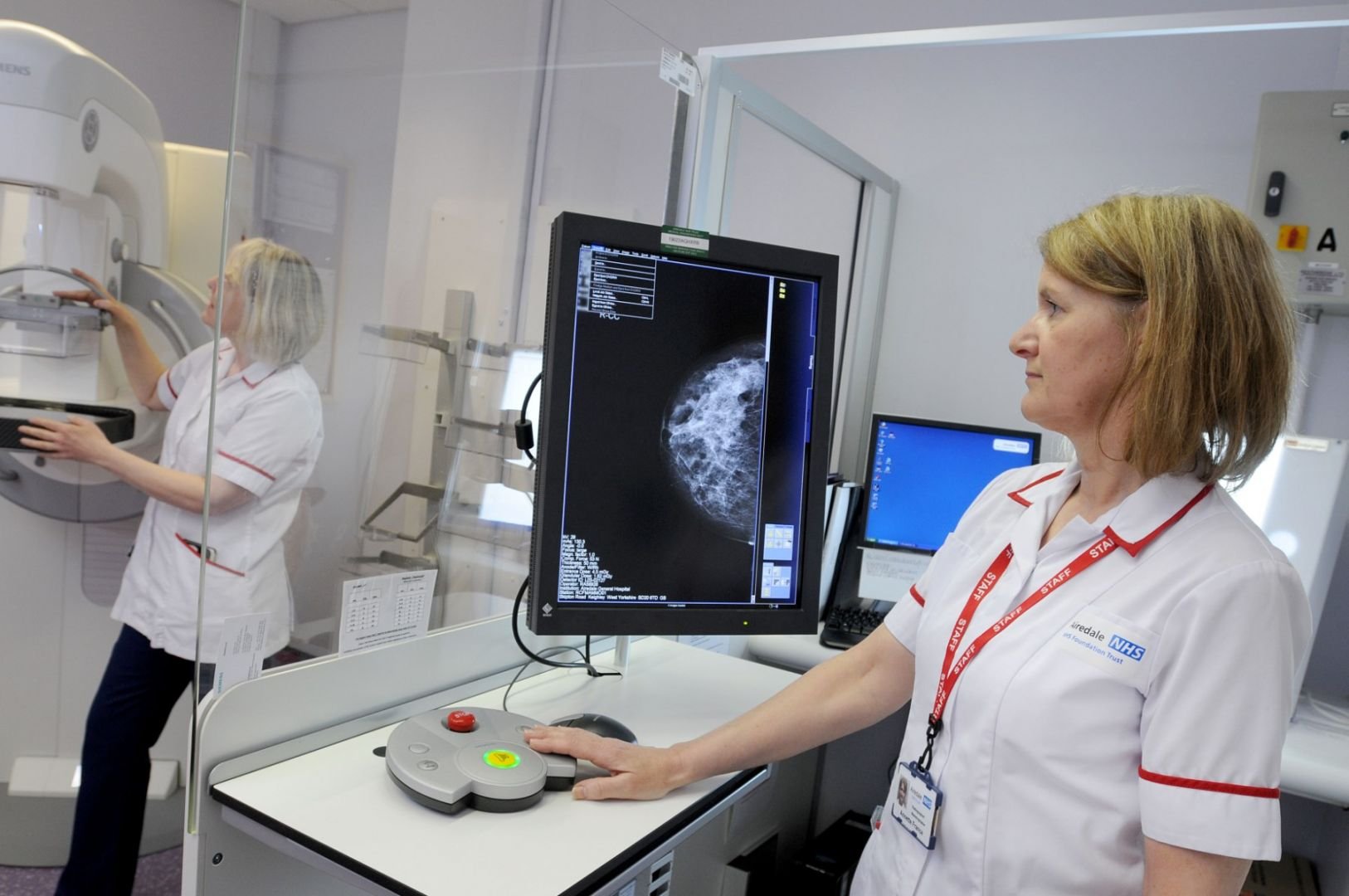 Two full business cases for WYAAT programmes worth a combined £18m have been approved by NHS England and Improvement and the Department for Health and Social Care. This significant investment in pathology and radiology services will deliver big improvements in care for patients in West Yorkshire and Harrogate. The first is to implement a shared Laboratory Information Management System (LIMS) to support the West Yorkshire and Harrogate Pathology Network.
Two full business cases for WYAAT programmes worth a combined £18m have been approved by NHS England and Improvement and the Department for Health and Social Care. This significant investment in pathology and radiology services will deliver big improvements in care for patients in West Yorkshire and Harrogate. The first is to implement a shared Laboratory Information Management System (LIMS) to support the West Yorkshire and Harrogate Pathology Network.
The LIMS is a type of software designed to improve lab productivity and efficiency, by keeping track of data associated with samples, experiments, laboratory workflows, and instruments. A shared LIMS will provide a resilient and sustainable solution for the future. The second is to deliver a shared radiology reporting system, which builds on the recently-introduced functionality which allows radiology colleagues across the WYAAT trusts to view images remotely. The new software will also allow them to report on any image, anywhere within the collaborative, providing options for flexible and home working.
'Our neighbours' online reality series – help us to make this go viral
The eagerly awaited first episode of the 'Our neighbours' online reality series launched on Monday 16 November at ourneighbours.org.uk and will run throughout the festive period. A new episode will be launched every fortnight. It has been covered in various media including BBC Look North. In the first episode, our neighbours from across West Yorkshire and Harrogate open up about life during Covid-19 and offer their insights and advice for all to hear. Times are tough but there is hope in neighbourly spirit and acts of kindness that will see us through the challenges ahead. By looking out for each other we can all do a little something that might make a big difference to someone who is feeling lonely, vulnerable or isolated – a small gesture can go a long way.
‘With a Little Help From My Friends’
Yorkshire Ambulance Service Trust very talented staff have got together to perform this fabulous rendition of 'With a Little Help From My Friends' to bring a smile to our faces and raise money for the Yorkshire Ambulance Charity and Shelter. A Christmas number one perhaps!
Todmorden Book Festival: Walking the Watershed Landscape
Watch this film produced by Calderdale Council - which is all about the Kramblers (Kashmiri ramblers) who are based in Rochdale and have West Yorkshire members. Kreamblers are bringing about grass routes changes towards BAME health to encompass, attitudes, perceptions, habits, access, opportunity and much more. The aim is to transform the BAME health landscape by making wellbeing attainable for all. A wide range of carefully planned projects are designed to make a healthier lifestyle accessible for all irrespective of ability and socio-economic factors.

